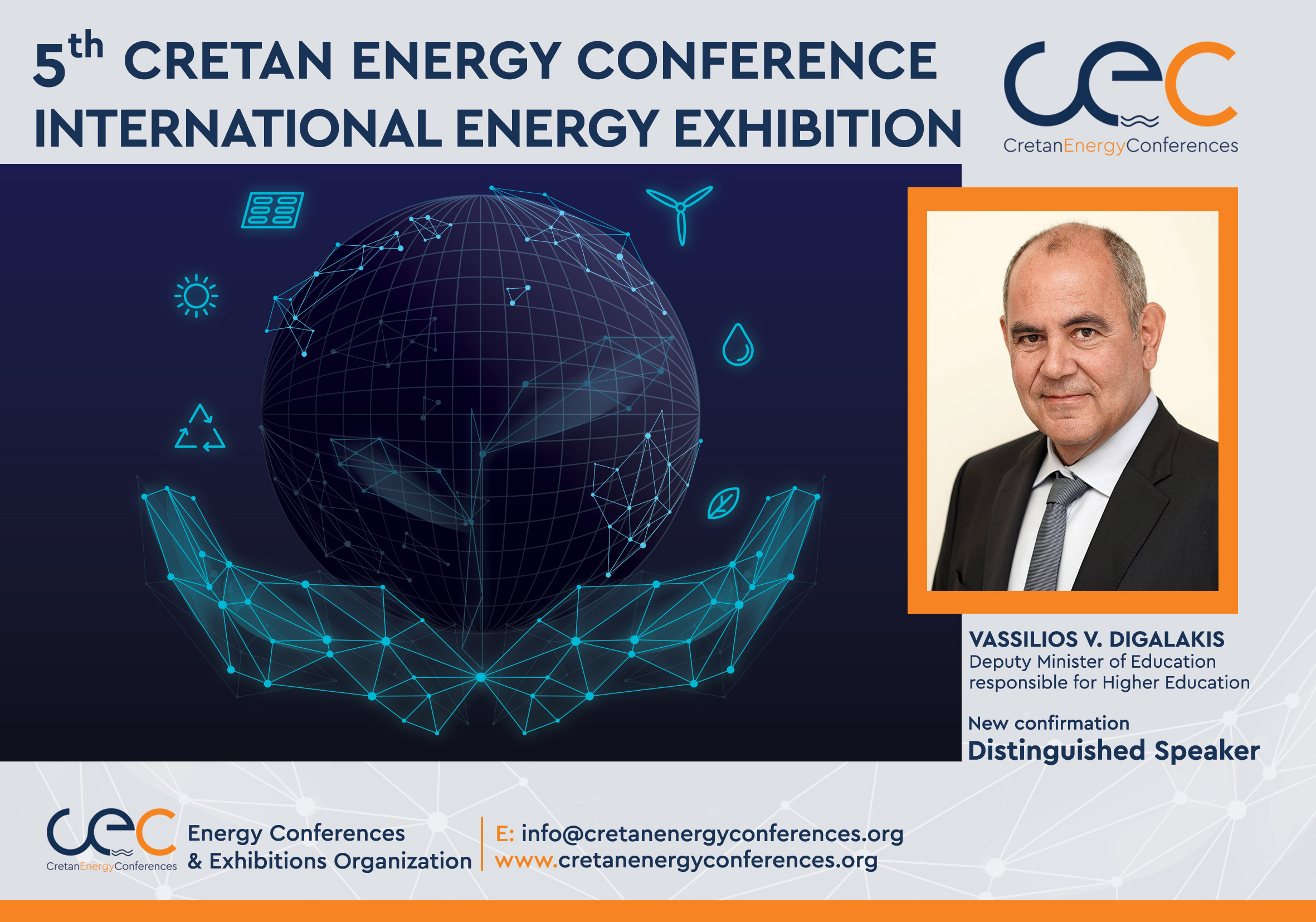By Mr. Vasilis Digalakis
Undersecretary of Education
Imposed mainly by climate change, the upcoming modifications in the way we produce, distribute, store and consume energy constitute perhaps the greatest technological challenge of our time. Almost all of science and engineering converge in energy technologies, which is why it will be the focus of research activity and the main field of innovation in the years to come.
It is generally admitted that our country has the privilege of possessing a wealth of energy potential. However, we are lagging significantly behind in its exploitation and must move rapidly towards energy transformation, by strengthening our infrastructure and adopting innovative models of production and consumption. There is a range of challenges that we will have to face, especially due to the fact that we are launching from a particularly negative starting point with regard to the existing production and distribution assets.
Crete, in particular, having until now had an autonomous power system and major requirements especially during the summer months, constitutes an extremely urgent priority: in order to offer 1 Kwh of electricity for consumption today, 2.9 KwH of primary energy are needed, with obvious consequences for national economy and the environment.
At the same time, the rich solar and wind energy potential of the island cannot be exploited, due to the regulatory restrictions imposed by a failure of interconnection of the island with the continental network. Worse still, a significant part of the existing Renewable Energy Sources production is discarded and not exploited. This can change with the upcoming interconnections implemented by the Independent Power Transmission Operator, as well as by making use of storage technologies.
Today we have a unique opportunity: we can turn the island into a living laboratory of energy technologies. With excellent research institutes – which in some cases lead European programmes for energy transformation – Crete can and should set an example of successful application of production, management and energy saving technologies:
- With the implementation of smart grids and the extensive installation of smart meters in order to reduce needs during peak periods, through demand response technologies and IT know-how exploitation.
- By transforming urban centres into smart cities using intelligent energy management and energy infrastructure improvement systems combined with water management and agricultural production systems.
- Utilizing energy storage and management technologies in conjunction with the introduction of electric vehicles (Vehicle to Grid – Grid to Vehicle).
- Through energy upgrading of the building stock with an emphasis on tourism and hospitality and the promotion of zero energy balance buildings and zero energy emissions.
- By reducing the urban heat island effect, which in turn can lead to a drastic reduction in energy demand during the summer season.
Key reform directions of the current political leadership of the Ministry of Education in the field of higher education are to improve the quality of education and relevance to the labour market, as well as the transfer of knowledge generated in universities to the real economy. In this context, the 5th Pancretan Energy Conference gives the opportunity to the Higher Education Institutes of the country to participate in the dialogue on the energy developments in our region and to highlight their action and research results.





